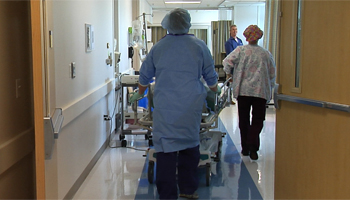
 If you’re considering an out-patient cosmetic procedure there are several important factors you need to be aware of before moving forward with surgery. Because there’s no mandatory law requiring ambulatory (out-patient), surgical facilities to be held to a certain standard of safety, patients need to be educated and careful.
If you’re considering an out-patient cosmetic procedure there are several important factors you need to be aware of before moving forward with surgery. Because there’s no mandatory law requiring ambulatory (out-patient), surgical facilities to be held to a certain standard of safety, patients need to be educated and careful.
By Geoffrey Keyes, MD
and Carolynn Grimes
ThePlasticSurgeryChannel.com
Dr. Geoffrey Keyes, a board certified plastic surgeon in Beverly Hills, California says, “Today it’s more important than ever to verify not only the credentials of your surgeon, but the credentials of the facility where you’re having surgery.” Keyes says only 20 states require the accreditation or licensing of out-patient offices where doctors perform surgery.
Laxity in Out-Patient Plastic Surgery Facilities
Some plastic surgery centers fall outside regulations because they bill patients directly. Because of this laxity in laws with ambulatory surgical facilities, the American Association for Accreditation of Ambulatory Surgery Facilities, Inc. (AAAASF) and the Accreditation Association for Ambulatory Health Care (AAAHC) were established. Their focus is to ensure quality patient care in the surgery setting. Today there are more than 2000 accredited outpatient facilities; however, it’s left up to the patient to find out which ones those are.

Keyes says, “Out-patient facilities should operate like small hospitals following the same types of standard for safety to ensure a safe outcome for whatever procedure you’re having performed.” Only offices that are accredited or licensed are required to have certain life-saving emergency equipment and drugs, adhere to strict safety procedures including anesthesia and cleanliness and be subject to inspection, according to AAAASF. “You should discuss that particular issue with your surgeon because it’s a matter of safety,” says Keyes.
Once you’ve decided on a procedure and a qualified surgeon, there are two questions you should ask your surgeon:
Where is my surgery going to occur?
Is the facility which I’m having my procedure an accredited or licensed facility?
“There are two components to having surgery; one is the technical results to achieve the outcome but the other is the safe process of going through the surgery and the postoperative course,” says Keyes. Remember, there is more to having surgery than just selecting a qualified surgeon; you also need to look into the accreditation of the surgical facility. Your doctor should be more than happy to discuss these questions with you so that you’re reassured of your safety and a good surgical outcome.














Facebook
Twitter
Instagram
YouTube
RSS